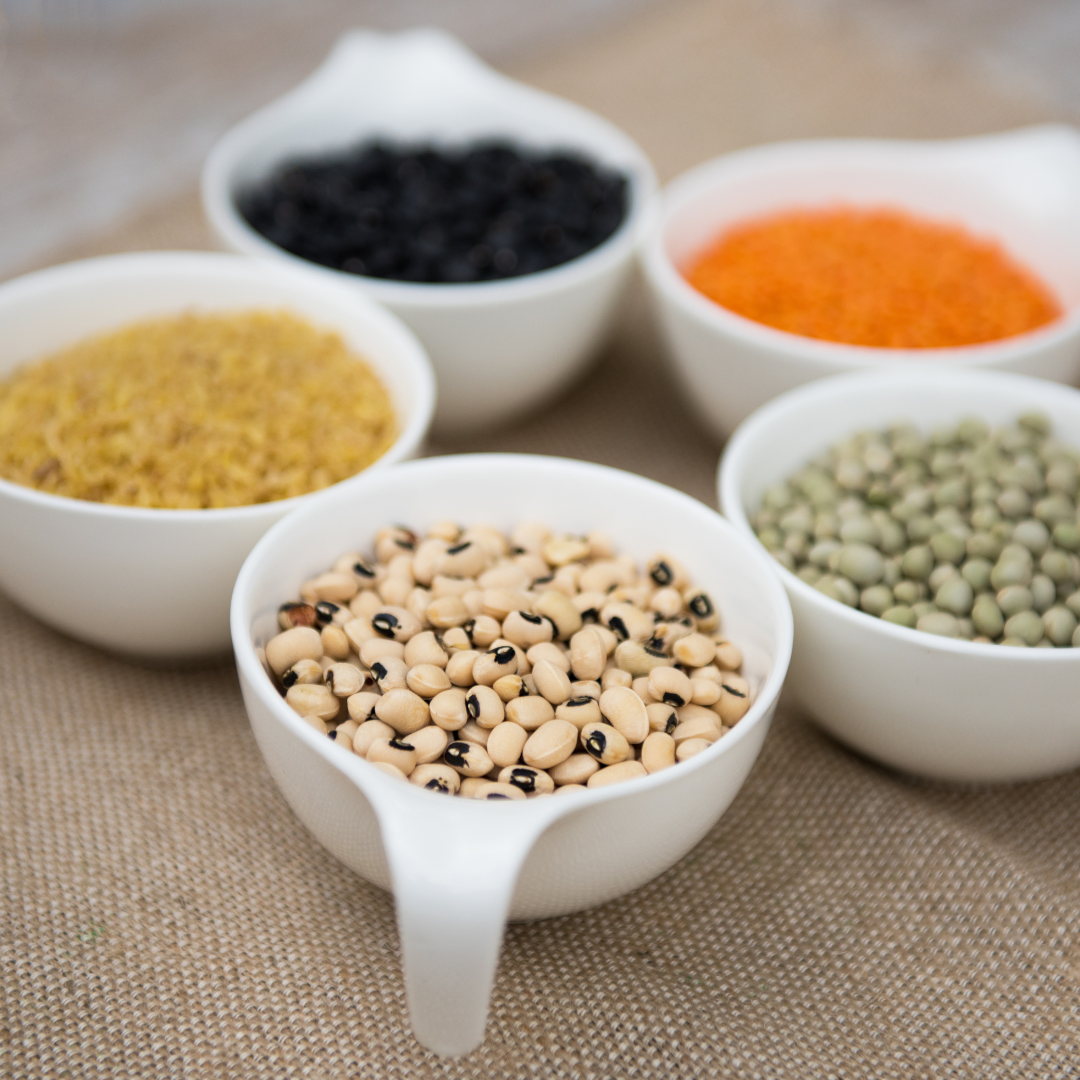Everything Your Need To Know About Vitamin D
We live indoors for most of our day. In fact, most urban dwellers spend over 22 hours indoors daily. The rest of the time is spent in cars, trains and buses or under some type of shade. This is probably why over 50% of Indians are deficient in this ‘sunshine vitamin’. For a country like ours, being deficient in something from the sun sounds like a joke, right?! But it is what it is.
Vitamins are substances that your body needs to grow and carry out the normal processes. Vitamin D is one such important nutrient helping our body absorb calcium. It is a fat-soluble vitamin meaning you need an adequate amount of fats to absorb vitamin D into your body.
Your body produces 7-dehydroxycholesterol (commonly known as vit. D3) when it comes in direct contact with the sunlight. Vitamin D 3 is what performs some fantastic functions for your body.

Where do you get this ‘sunshine vitamin’?
As the name suggests, sunshine is the main source of vitamin D. We get 90% of our daily vitamin D from the sun and the rest 10% from our diet. 2020 guidelines suggest that a 20 minutes exposure to direct sunlight between 11 am to 3 pm is sufficient to ensure you are getting your daily vitamin D. During monsoons, this may go up to 45 minutes per day.
Vitamin D from sunlight hits the surface of your skin and gets absorbed from thereon.
Vitamin D & Our Lifestyle
Getting 20 minutes of direct sunlight should have been a fairly simple task. But we just don’t spend that kind of time under the sun anymore. This, coupled with irregular food and sleep pattern, lack of activity, intake of processed foods, overthinking, breathing polluted air, eating adulterated fruits and vegetables, together have led to a whole host of lifestyle disorders.
As we study the role of individual aspects in-depth, vitamin D deficiency is looking like a key stakeholder in the process.
We have identified a clear connection between vitamin D deficiency and osteoporosis, diabetes, inflammation, early ageing, post-menopause discomfort, hypertension, anxiety, weight gain, PCOS, liver function, dementia, memory and immunity. The COVID-19 pandemic also highlighted vitamin D deficiency as a risk factor.
Although almost all plant-based foods have some amount of carbohydrates in them, in everyday conversations carbohydrates is used for things like cereals, starchy vegetables and fruits.
Vitamin D deficiency and Osteoporosis: What’s the link?
“Osteo” means bone and “porosis” refers to porous. Osteoporosis is a condition where your bones become porous and hence weak, brittle and prone to breaking.
Generally, vitamin D absorbs calcium and ensures that it is deposited into your bones. In a situation where Vitamin D is insufficient, this process will also be slow. In addition, your blood calcium levels always have to be maintained, this is more crucial than anything else. So on a normal day, there is a constant deposition of calcium in the bone and simultaneous extraction of calcium for blood levels. If the extraction is more than the deposition you end up losing calcium. This is when your bones start becoming porous. This is what happens in the absence or deficiency of vitamin D. The younger and longer you stay deficient, the weaker your bones.
Vitamin D & Pregnancy
There are three aspects to consider:
-
- Pregnancy, by default, is very demanding on the mother’s body and puts a lot of pressure on the skeletal structure. This is why women of childbearing age need to keep their bones strong by default.
- Your growing baby needs a lot of calcium for development. If your daily intake is less than your body will leech out calcium from your bones, leading to weakening of bones. Vitamin D deficiency during pregnancy also increases the risk of complications like preeclampsia or hypertension.
- A baby who grows in a vitamin D deficient environment has a significantly higher risk of developing rickets.
Deficiency in kids
Vitamin D deficiency in children can cause rickets, delayed brain development, muscle weakness, aches and pains, and fractures. For growing children, spending time under the sun is like a cure-all, growth tonic that just cannot be ignored. You get the sun for your bones, you get germs which improve your immunity, you get fresh air, that improves oxygen supply and a lot more.
Vitamin D & Immunity
Ever wonder why you always have a cold in the rainy season?
One of the reasons for this is the lack of sunlight. Vitamin D plays a critical role in promoting immune response. It has an immunoregulatory effect that ends up protecting us from harmful microbes. No sunlight = very less vitamin D = Low immunity = frequent cold and flu.
Vitamin D & Food Cravings
Some studies have also shown positive results in terms of its link with weight loss. When you don’t have enough vitamin D, you feel hungry all the time, no matter how much you eat. Low levels of vitamin D interfere with the effectiveness of leptin, the appetite hormone that tells you when you are full. This is why your cravings seem constant and unending, which leads to weight gain.
Vitamin D & The Brain
Till a few years ago, we believed that Vitamin D was essential for bone health and that’s it! But we have now identified vitamin D receptors in the brain as well. Low vitamin D levels are associated with fatal strokes, dementia and Alzheimer’s. Also, one of the hallmark symptoms of vitamin D deficiency is brain fog, memory loss and feeling low. This clearly indicates the effectiveness and power of vitamin D on your body.
Why are we deficient?
As mentioned, 1 in 2 people is deficient in this vitamin. 8 out of 10 pregnant women are deficient.
This is largely because we just don’t spend enough time under the sun.
Even when we do spend time in the sun, we may have sunscreen on that could potentially be blocking off the vitamin D.
The other issue is that brown-skinned people have a higher prevalence of vitamin D because they have more “melanin”, the pigment that makes us brown. Melanin has a photoprotective effect, because of which absorption of vitamin D is lesser in people with more melanin.
The final reason is your diet. There are certain foods that are rich in vitamin D. So if your geography or lifestyle prevents exposure to sunlight, then this becomes all the more important. Also, people who are on low-fat diets or are only consuming unhealthy fats, also have a decreased vitamin D absorption.

Are you deficient?
Vitamin D deficiency has some very unique symptoms. Here are some of the more common ones that I have seen with my clients so far:
Fatigue or tiredness
-
- Bone pain – especially the long bones on your thighs
- Joint pain
- Lethargy, low energy levels throughout the day
- Aches and pains
- Irritable
- Higher stress level
- Disturbed sleep
- Weight gain
- Hair loss
- Tingling on the legs
- Brain fog
- Forgetfulness
- Feeling sleep-deprived
What to do next?
If you resonate with the above symptoms, get your blood work done to test your levels.
-
- If the levels are low you’ll have to get onto supplementation immediately. Ensure you take the supplements till your level reaches 70-75.
- Spend 20 minutes in the sun every morning (early morning sunlight is safer from cancer prevention and tanning perspective)
- Keep your windows and curtains open as much as you can
- Get your vitamin D from food – egg yolks, fatty fish, mushrooms and cow’s milk are your only sources
- Introduce good fat into your diet – this includes nuts, seeds, coconut, avocado, fatty fish, whole eggs, and ghee
- Take a 1000 IU supplement daily. Speak to your nutritionist or doctor before you start.
Vitamin D is one of the most important nutrients to look out for. The 21st century has seen a huge decline in overall health. People are falling sicker younger! And we really do need to change this. Vitamin D is one of the easiest ways of protecting yourself and your loved ones from the world of lifestyle disorders. I urge you to make the change!
Thank You








nitul
nice topic
this post is very useful for me
Expressive Therapy For Depression